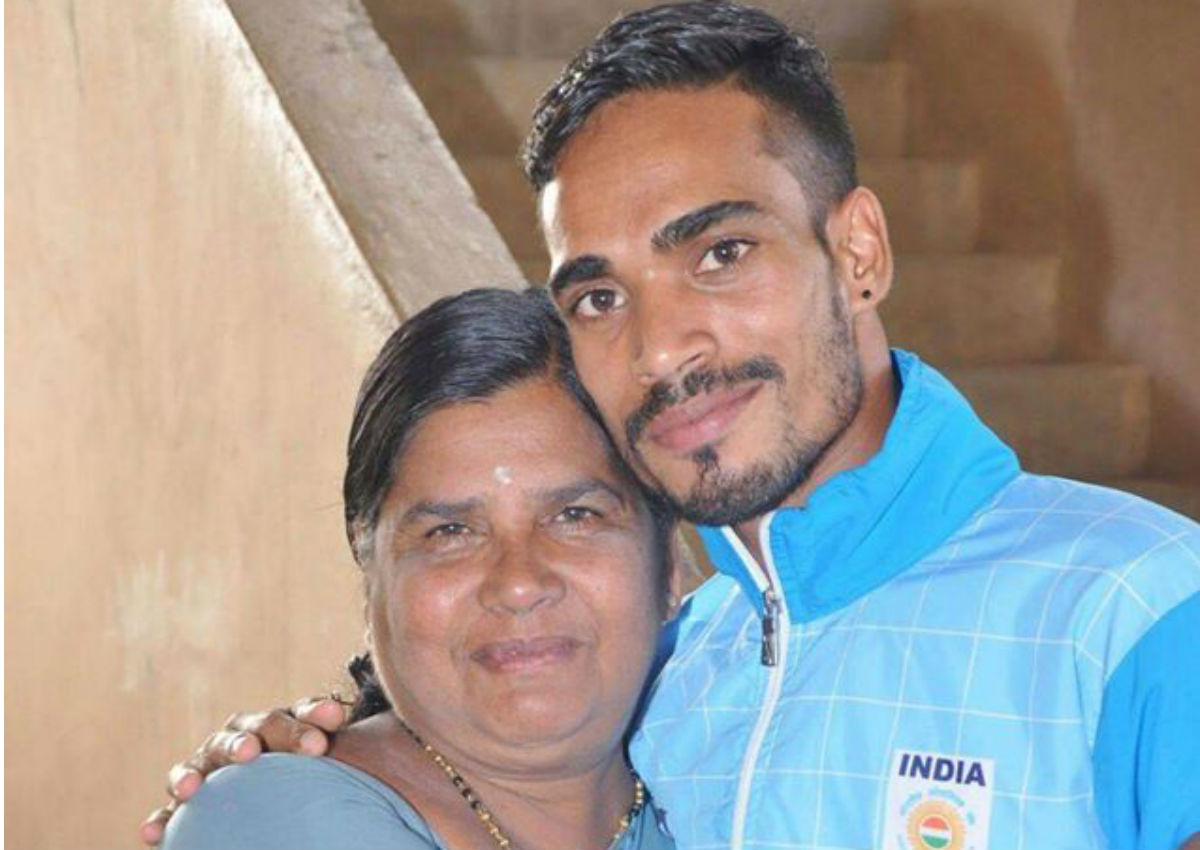Indian athlete Gopi Thonakal is an accidental marathoner, becoming one just seven months before the Rio Olympics. Yet, in Rio, the 28-year-old long distance runner from Kerala was India’s best performer in the men’s marathon.
He finished 25th, a commendable effort in a race still new to him.
Gopi ‘s story is typical in Indian sport, where athletes get to the Olympics because of raw talent and personal determination, but fail to bring back glory for lack of administrative support and training they require for that extra advantage to compete at those world-beating levels.
India returned from Rio 2016 with just two medals, a silver in badminton and a bronze in wrestling.
In the weeks that follow the Olympics, frenzied emotions are on display at every debate in the country. Yet, in the before and after of India’s Olympic woes, emerge stories of unimaginable human struggles and triumphs.
These are the stories of India’s sportsmen and women that soothe the wounds, give hope for a better future and celebrate the dichotomy that is India. For these men and women fight not only their competitors, but a life of hardship and little support.
Gopi’s story is one such. It begins in the lush paddy fields of Wayanad district in northern Kerala. His father is a tribal farmer in a small village near the municipal town of Sulthan Bathery. Gopi remembers running in the radiant green fields through the day as a little boy.
“I could run for hours. At that time, I didn’t think of becoming a big athlete. I just ran because I could,” he told tabla!.
Tribal farmers of India are one of the most backward sections of the country. Many find it difficult to provide their families with three nutritious meals daily. Gopi’s family was no different.
The turning point in his life came when he was about 13 years old. His running prowess was spotted by physical education teacher KP Vijayi in his school, Government Higher Secondary School in Kakkavayal.
“I played all the sports that other boys did, like football, cricket. But it was because of my teacher that I focused on running,” he said. Mrs Vijayi took him under her wings, ensuring that he never missed his practice or proper meals provided by the school.
He stayed with her at her home during holidays just so there was no break in his practice. Through school and college, Gopi ran in the 5000m and 10,000m, winning many interschool and inter-state meets.
“Despite all this, I didn’t think I could compete internationally till I joined the Indian Army in 2009,” he said. He ran his first 42.195 km on Jan 17, 2016 in Mumbai as a pace-setter for his army colleague Nitendra Singh Rawa,who was trying to qualify for Rio. To his surprise, Gopi finished the race 11th, clocking 2.16.15secs and booking his place for the Games. The Olympics qualifying cut-off was 2 hours and 19 minutes.
In Rio, he ran the marathon in a personal best time of 2.15.25secs, finishing ahead of his more experienced compatriots Kheta Ram (26th) and Nitendra Singh Rawat (84th). He currently holds the rank of havildar in the army’s Hyderabad Artillery Centre, but spends most of his time at the Army Sports Institute (ASI) in Pune.
“At ASI I learnt so much more about being an athlete. The training, fitness, nutrition, all that goes behind making a successful athlete. I got more focus,” he said.
His training at the institute begins at 4am. The morning session lasts four hours, followed by another session in the afternoon, of 3-4 hours. The results started to show from 2014 with Gopi winning the gold in the 10,000m at the National Open Athletics Championships in New Delhi. He followed that up with gold in the same event at the South Asian Games in Guwahati this year.
“The 10,000m is my preferred event. So the qualification for the Olympic marathon was a real surprise. I did not tire after the 30km mark so I kept going,” he said.
Eye-opener
He knew the Olympics were going to be a different ball game. “I ran the first half of the race well. In the last four kilometers, the road was tiled. I found that stretch difficult because it was raining and slippery and I was not used to it,” he said.
He said the Rio Olympics was an eyeopener for him.
“We are years behind in technology employed by top athletes from around the world. The recuperating techniques they use, the massages, the supplements, everything, is just so much more advanced and scientific than ours,” he said.
“If we were given the same kind of preparation, we would definitely be bringing home the medals,” he added.
Most of India does not have access to basic sports facilities. Schools in rural towns and even bigger cities don’t have sports fields. Sports equipment is out of reach of most people because they can’t afford it. A majority of the government expenditure on sports is lost to corruption and rarely reaches the athletes it’s intended for.
Despite the struggles, Gopi said he has many more years of running left in him and has set his eyes on the Tokyo Olympics in 2020. He may not have an Olympic medal around his neck but he is already a hero, an icon, a role-model in his village.
“I am the first person from my village to compete in the Olympics. Everybody is very proud of me and it makes me very happy,” he said. Gopi deserves this happiness and much more. For, persisting on running the treacherous road that is Indian sport, he is a champion already.

Get a copy of tabla! for more stories.






